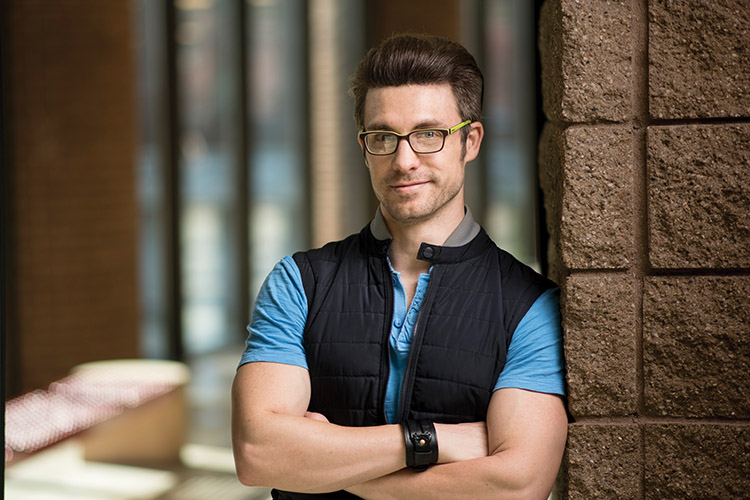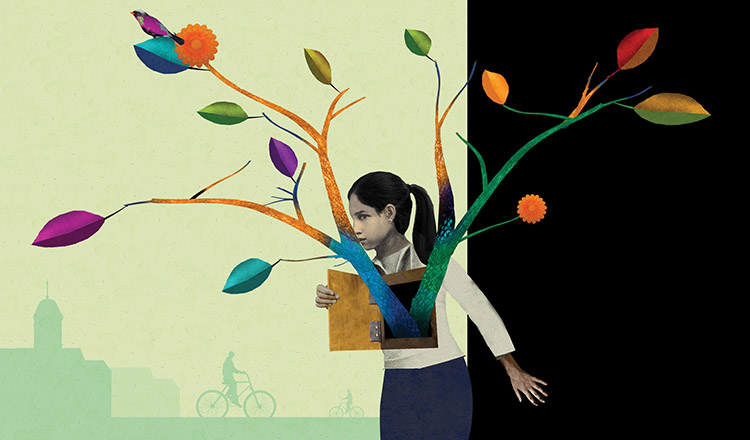Diversity transformation project shines a warm light on what’s hidden
What one holds back can hurt. The pain of keeping secret a marginalized aspect of oneself holds one back from accomplishing what one otherwise might. Worse, the stress of protecting oneself from the public eye can lead to major depression and illness.
The minds behind the Purdue Identities Project (PIP) want to take away the hurt and the secrets. PIP is leading a charge for acceptance for anyone who has a hidden identity — an illness, mental health issue, minority sexual or ethnic status, veteran status, or any other element that might make one feel “other.”
Drew Mallory, project co-lead, says the university is ready to adapt. “The campus is clamoring for information and change. People are eager to receive training opportunities on sensitive conversations and diversity management,” he says. “Purdue’s campus can feel fractious and fractured at times, with groups splitting off and rarely interacting. As we moved through the project, we were struck by the passion many have for overcoming these boundaries and creating connections.”

Mallory and co-lead Deborah Rupp launched PIP in 2016, earning funding through a Diversity Transformation Award, part of a university effort to increase diversity on campus. Mallory and Rupp — respectively a doctoral candidate and a professor in the industrial-organizational psychology program — envisioned an unconventional approach to diversity.
“We chose to focus on the marginalization and exclusion experienced by individuals who have identities that can be hidden,” Mallory says. “Most people have experienced some kind of discrimination or stigma based on an aspect of their identities.”
In fact, Mallory’s partner struggled with what Mallory called “a series of harrowing events on campus and in the community” relating to a medical condition and trauma.
“As a psychologist with a background in social work and interventions, I fortunately was equipped to help with many of these concerns,” Mallory says. “But I couldn’t take away the social isolation, the discrimination, or the fear.”
Enter PIP, a way to support people who might not otherwise have help available. The organization has run education and training programs for students and created an identity inclusivity certification for organizations — i2, which engages with sports, religious, Greek, and other organizations to foster environments that embrace all.
The deepest impact of the program may be coming from its #BoilerIdentities video series, in which students, staff, and faculty share their hidden identities. The videos are crafted as conversation-starters.
“The stories you’ll hear are incredible,” Mallory says, “and totally unknown — some people had never spoken up before. We’ve received some incredible feedback about the effects of the videos on students, in particular, who often have not encountered this kind of diversity.
“Of course, that’s just why we created them. Research shows that video contact with different identities can help to change the way we see them.”
For Dionne Carroll (EnE’15), who “used to be ignored as a weirdo,” sharing her story was a challenge.
“Speaking out still makes me nervous,” she says, “but I feel like it’s necessary. Everybody deserves to be heard, and whether they’re willing to share is a threshold to overcome. Not only does this help me branch out and cross that threshold, but it may help other people do the same.”
Carroll acknowledges that opportunities may be slimmer for some but that anyone can find a place: “There’s still a long way to go from here, but I think that hearts are in the right place,” she says. “Purdue is an exciting campus, and you can make of it what you want. Embrace the differences — even poke into them and do your own thing.”

